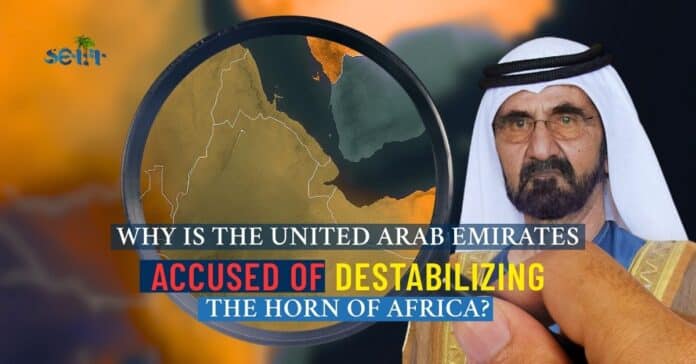In a recent address commemorating Eritrea’s Independence Day, President Isaias Afewerki articulated accusations against the Ethiopian government, alleging that it is acting on behalf of foreign interests to undermine local initiatives aimed at fostering peace and development in the region. Numerous analysts and regional specialists speculate that these claims are primarily directed at the United Arab Emirates, identified as a key player in the destabilization of both Sudan and Somalia. This raises a critical inquiry: What are the strategic motivations behind the UAE’s apparent desire to weaken the political and economic stability of both Eritrea and Sudan?
Geopolitical Influence
The United Arab Emirates (UAE) is actively competing with regional powers, including Qatar, Turkey, Saudi Arabia, and, to a lesser degree, Egypt, to enhance its influence in the Middle East and the Horn of Africa. The UAE’s support for various factions, such as those in Sudan, is a strategic move to shape political leadership that aligns with its objectives. Furthermore, the UAE’s substantial investment in the port of Berbera in Somaliland clearly indicates its intent to engage unilaterally with factions or secessionist movements that challenge the central government of Somalia, which maintains alliances with both Turkey and Qatar.
During the conflict in Yemen, the United Arab Emirates leveraged its geographic proximity to Eritrea, utilizing the port of Assab as a military base to conduct airstrikes against Houthi rebels. Furthermore, there are indications that this base was also employed in operations against Tigrayan forces during the Ethiopian conflict. However, the post-cessation of hostilities agreements have led to a notable cooling of relations between Eritrea and the UAE. The Eritrean government has expressed dissatisfaction with the UAE’s involvement in destabilizing Sudan through direct military and financial support to various rebel factions.
The UAE exerts significant influence in the Horn of Africa, notably shaping the dynamics of various crises and political settlements orchestrated by both international and regional actors. A pertinent instance was the conference convened on January 14, 2025, alongside the African Union summit in Addis Ababa. The event, convened by the UAE, sought to tackle the urgent humanitarian crisis in Sudan. While the initiatives did not fulfill their specified objectives, they underscore the UAE’s strategic involvement in interfering with and aggravating the socio-political complexities of the region.
Economic Interests
The United Arab Emirates (UAE) has established itself as a significant commercial hub, strategically positioned between Europe, Asia, and parts of Africa, bolstered by its free trade zones and advanced logistics services. However, the geographic proximity of Eritrea and Sudan along the Red Sea corridor presents a potential competitive challenge to the ports of Dubai and Abu Dhabi. Should Eritrea, for instance, develop its Red Sea ports and surrounding islands to attract foreign investment, it could significantly reduce shipping distances—potentially by several hundred, if not thousands, of kilometers—thereby lowering operational costs and enhancing profitability for producers and consumers.
The UAE harbors concerns that a cooperative relationship between Eritrea and Sudan could stabilize the Red Sea region, subsequently drawing foreign investment into port development and logistics hubs. As a countermeasure, the UAE appears to be actively involved in undermining the stability of these nations, potentially by providing support to local militias and rebel groups or by assisting nations like Ethiopia and Kenya financially, enabling them to meet obligations to international financial institutions such as the IMF and World Bank. These nations effectively become arenas for the UAE’s strategic interests.
Moreover, the UAE is investing substantially in countries like Ethiopia, acquiring land, stakes in state-owned enterprises, and funding government initiatives. These activities are likely intended to influence domestic policies and ensure alignment with UAE interests in the region.
Numerous international organizations have strongly criticized the United Arab Emirates for its complicity in the illicit appropriation of Sudan’s gold resources through illegal mining operations. Additionally, the UAE’s direct involvement in the Sudanese civil conflict, particularly through support for rebel factions in Darfur, has drawn allegations of facilitating atrocities and war crimes against the local population.
Conclusion
The United Arab Emirates (UAE) is pursuing a strategy to safeguard its sovereign interests by fostering discord among neighboring countries. This erodes trust and obstructs opportunities for cooperation and regional collaboration. This divide-and-rule tactic appears to be effective in the short term; however, local populations are increasingly vocal in denouncing the Emirates’ destabilizing policies. In the long run, such disingenuous strategies will likely backfire, positioning the UAE as the ultimate loser in the regional geopolitical landscape.

